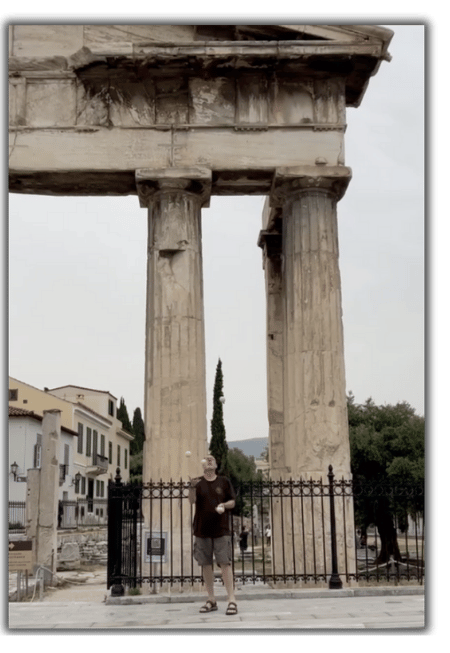
From circus school and exploring ancient Mayan ruins, to working as a director of advanced computing infrastructure, Eric Marshall is a true pathfinder. For the past six years, Eric has been managing a team that supports computational research within the Office of Advanced Research Computing (OARC) and helps run software and hardware across Rutgers. Both professionally and personally, Eric is constantly looking to expand his skillset. Eric is deeply passionate about education and spends his free time woodworking, taking guitar lessons, and exploring interesting courses on LinkedIn Learning.
What does your position entail?
I run the advanced computing infrastructure team within OARC. My team and I build and support large computer clusters that work together to process larger amounts of data for the entire Rutgers community for when a regular computer just doesn’t cut it. We also design and support solutions for researchers with infrastructure problems and support grants.
When did you join the Rutgers community?
I first came to Rutgers in the 1980s for my bachelor’s degree in archeology and then I came back in the 2000s for an open research position. I left to work on the National Oceanic and Atmospheric Administration’s research network, N-Wave, but returned as a consultant to the School of Communications and Information and worked closely with OARC. I applied for my previous position at OARC as a systems administrator/programmer, which eventually led me to my current position, and I have been here ever since.
How did you transition from archeology to technology?
In the beginning of my career, I focused on object restoration and taught some adjunct classes at NYU on how antique furniture works and how to detect fake antiques. I ended up taking technology classes in Brooklyn to try and learn more while still doing object restoration. Funny enough, there is a bit of overlap between object restoration and technology because with both fields, you don’t know what the issue could be until you get into the project. It’s a very similar thought process of problem solving, just with different tools. With technology at least there is some wiggle room for error, you can always try again. With art, changes are less forgiving.
Why are you passionate about your current position in technology?
I get to write software and do things that impact people directly, sometimes even millions of people, which is something other professions can’t
scale. From making amazing discoveries, like curing diseases, to understanding how the universe works, this position in OARC gives me an opportunity to do something worthwhile.
What do you do in your free time?
Before my wife and I were empty nesters, my family and I went to circus school. My daughter ended up touring with the youth circus and my son competed in the International Jugglers’ Association juggling championship in 2020 and won the gold medal! My wife and I started to get into juggling as well! I also enjoy woodworking, making model ships, taking guitar lessons, and traveling. I’ve even combined some of these interests and made instruments through woodworking.
What is your most interesting travel story?
When I was getting my undergraduate degree, I ended up doing fieldwork in Belize at a Mayan site. I was able to see the ruins of Tikal, which were used in the Star Wars films for the planet Death Star scenes. I also traveled to Yap in Micronesia to do database programming and training. A very cool fact about Yap is that they still use giant stone wheels as currency, alongside regular paper money and coins.